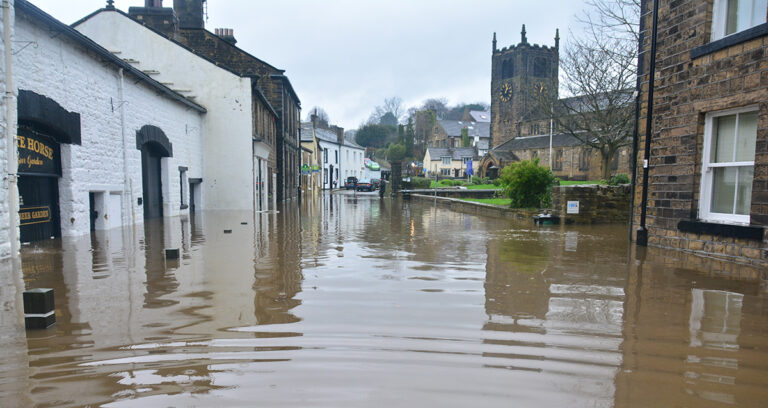Organisational preparedness for the physical risks of climate change in the UK: headline findings from a UK-wide survey (April–May 2021)

Download
This report presents the headline findings from a national survey of UK-based organisations’ perceptions about adapting to a changing climate. Called ‘PREPARE-3’, the survey was carried out in 2021, with 2,400 individuals. It covers awareness among organisations of climate change, its physical risks and how organisations are taking action to prepare for perceived risks. The survey follows earlier surveys in 2010 and 2013 (PREPARE-1 and PREPARE-2, respectively). PREPARE stands for Programme of Research on Preparedness, Adaptation and Risk.
The majority (69%) of survey respondents were from the private sector, while others came from public health authorities, local authorities, public educational establishments, and third sector or charitable organisations. The people surveyed had roles related to organisational planning.
The authors provide insights into a wide range of factors relating to UK-wide organisational and sectoral perspectives on preparedness, risk and adaptation to climate change, considering changes over time and give specific attention to perceptions recorded in spring 2021.
The analysis is relevant for the private sector and related associations, and the public sector and policymakers focused on improving the role and inclusion of adaptation, preparedness and risk resilience initiatives within organisational planning.
Headline findings from the survey include:
- The vast majority of organisations in the UK are unprepared for the extreme weather disruption that climate change is bringing. Only one in eight (12%) has comprehensively assessed the risks of extreme weather disruption, and only one in six (16%) has a plan for adapting to future climate change. This is despite three in five (58%) survey respondents saying their organisation had been affected by the impact of extreme weather events in the last three years.
- Flooding topped respondents’ fears of disruption by weather and climate-related events.
- Almost nine in 10 (88%) respondents felt that the national government should have full or partial responsibility for managing the effects of climate change.
- Three in five (57%) believed the Government should provide more information about the effects of climate change in the UK, and just over half (54%) indicated that the Government should provide funding, subsidies or tax breaks to help them adapt to the changing climate and increased risk of extreme weather.
- The top reason why organisations were not yet adapting to the physical risks of climate change was insufficient financial resources (chosen by 45%). Other barriers included: complacent organisational or staff attitudes towards climate change; difficulty identifying effective measures; lack of access to, or awareness of, new technologies; and not considering adaptation a priority, other matters taking higher priority or having competing priorities.
- The survey found that 16% of organisations have an adaptation plan, while a further 37% said their organisation were developing one. A majority (64%) of those with plans said that it was their first one.
- The three weather-related extremes of most concern to organisations in the 2021 survey were “a heavy downpour causing localised flooding” (66%), “severe flooding at the nearest coastline” (50%), and “an intense heatwave lasting a week” (47%).

